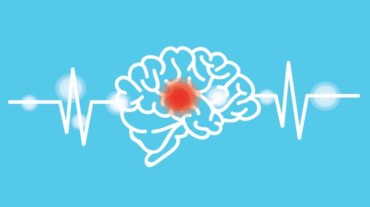
You must have heard people telling you to be positive. And at times you have ignored it because optimism in today’s world sounds like hokum. But if you haven’t paid much heed to this philosophy then this is the time – because practicing it can help you reduce the chances of stroke.
The preliminary research was published in the journal of NIH/National Institute of Neurological Disorders and Stroke. The study suggests that stroke survivors with high levels of optimism had lower inflammation levels, reduced stroke severity, and less physical disability after three months as compared to those who are less optimistic.
This study can help in developing a new strategy from recovering a stroke
In 49 stroke survivors, the researchers examined the relationship between optimism, inflammation, stroke severity, and physical disability for three months.
Researchers said that understanding how these elements relate to or impact one another may provide a scientific framework to develop new strategies for stroke recovery.
“Our results suggest that optimistic people have a better disease outcome, thus boosting morale may be an ideal way to improve mental health and recovery after a stroke,” said Yun-Ju Lai, PhD, MS, RN, the study’s first author and a postdoctoral fellow in the neurology department at The University of Texas Health Science Center at Houston.
Post-stroke inflammation is detrimental to the brain and impairs recovery. Optimism has been associated with lower inflammation levels and improved health outcomes among people with medical conditions, however, no prior studies assessed if this association exists among stroke patients.
Also, read: These 6 mental health books will feed your soul as well as your mind
Increase in optimism is directly related to a decrease in stroke severity
This pilot study is a secondary analysis of data collected from a repository of neurological diseases. Outcomes included optimism levels from the revised Life Orientation Test, a standard psychological tool for measuring optimism; stroke severity evaluation through the National Institutes of Health Stroke Scale, and levels of inflammatory markers–interleukin-6 (IL-6), tumour necrosis factor-alpha (TNFa) and C-reactive protein (CRP).
As optimism levels increased, stroke severity and the inflammatory markers IL-6 and CRP decreased even after considering other possible variables. However, this was not true of TNFa.
Select Topics of your interest and let us customize your feed.
PERSONALISE NOWLai says:
Patients and their families should know the importance of a positive environment that could benefit the patient. Mental health does affect recovery after a stroke.
“Although immigrant men also face many of these settlement problems, they were not at elevated risk of distress compared to their Canadian-born peers,” says co-author Karen Kobayashi, Professor in the Department of Sociology and a Research Affiliate at the Institute on Aging & Lifelong Health at the University of Victoria.”
“One idea we hope to explore in future research is whether these gender differences could be due to the fact that the husbands initiated the immigration process and the wives may have had limited or no say in the decision to leave their homeland.”
The study team analysed data from the Canadian Longitudinal Study on Ageing which included 25,834 men and women aged 45-85 years. The article was published this month in the Journal of Affective Disorders.
Also, read: 3 science-backed reasons why ‘self-talk’ can boost your mental health
“The team’s findings suggest that policies and health care practices should aim to reduce nutrition risk, improve diet quality, address chronic pain, and health problems and poverty among those experiencing poor mental health,” adds Dr Davison.
“Given that mental health conditions place a large burden of disability worldwide, such program and policy changes are becoming critically important.”